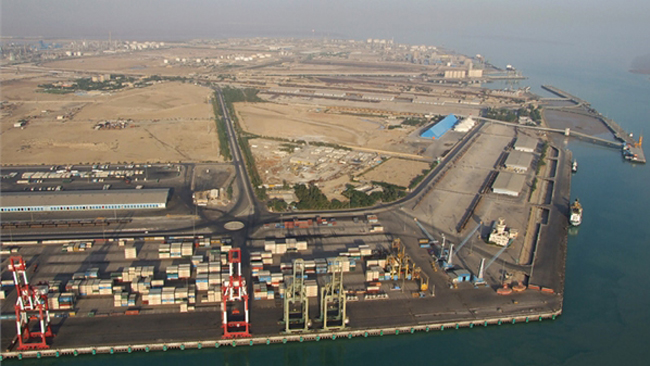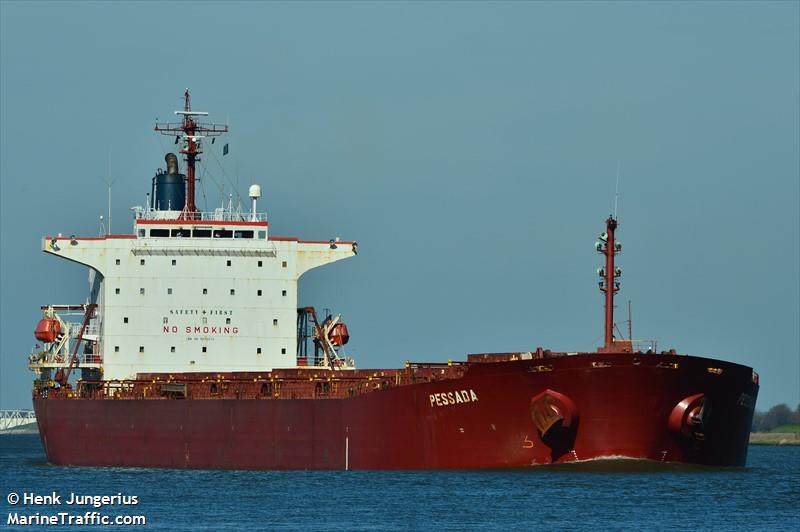Chicken, the second most used food product after red meat in Iran, is the talk of the town theses days. It’s seen a 36% price rise only during the past fortnight.
Poultry Vendors Association says the sharp price hike is due to the “current economic situation and that poultry hatcheries don’t risk producing more chicken because of the problems in receiving the animal feed”, according to Ilna news agency.
“Corn and soybeans prices have gone up so have the one-day chicks. It’s back-breaking,” complained an anonymous producer on social media. “All poultry producers are either broke or on the run,” he warned.
“More than 95% of the soybean press cake and 50% of the corn” used in Iran poultry industry is imported, according to a recent report by Iran’s parliament.
A number of cargo ships carrying agricultural commodities are spending weeks anchored off the coast of Iran as importers are delayed in making payments.
Any delay in cargo discharge of the vessels damages the domestic food chain and burdens the end user. “If the oilseeds are distributed late to a producer, they need to postpone the production, that is they need to either keep their workforce, paying them while they haven’t worked, or let them go”, says Hadi Haghshenas, Maritime Affairs Vice President at Iran’s Ports and Maritime Organisation, warning of “huge damages in the final chain of the staples production”.
Final consumers of retail products in Iran are already the one who are bearing the brunt of sanctions which were supposed to exempt food and medicine.
Brazil and Argentina are the main sources of the country’s soybean and maize. Those imports have been hugely affected in recent months, especially after November when the US reimposed sanctions on Iran after withdrawing from the 2015 international nuclear deal with Tehran.
A recent report by Bourse and Bazar website showed more than a dozen bulk carriers, laden with tons of commodities have been anchored off the coasts of Iran waiting for the payment clearance, hindered by Washington’s punitive measures.
Out of the 8 vessels that left Brazil and Argentina in October and November, heading for two Iran ports of Imam Khomeini and Shahid Rajai (formerly Bandar Abbas), 3 still remain anchored miles offshore waiting to unload their cargoes, according to the latest data obtained by the online ship tracking platform marinetraffic.com
The bulk cargo vessel KMAX LEADER, charted by TBI and travelling under the Cyprus flag, left the Braizilian port city of Imbituba on 25 October and arrived at the anchorage for Bandar Imam Khomeini (BIK), located about 75 kilometers offshore, 8 November. As of 27 December, the ship remains anchored there, that is more than 60 days.
It goes the same for The Living, a Panama-flagged cargo vessel, chartered by Argentine soy crusher Vicentin that left the port city of Necochea 2 November and arrived at BIK anchorage 7 December. The 40,488-tonned carrier hasn’t been able to discharge the soybeans yet.

An aerial view of Bandar Imam Khomeini (BIK), largest of Iran ports (Photo: Ports and Maritime Organisation of Iran (PMO))
The Maltese vessel Pessada shares the same story. Its latest status, according to the marinetraffice.com reads “at anchor” in Persian Gulf. The ship was chartered by Cofco, China’s largest agribusiness firm and a global leader in commodities trading, to deliver Brazilian maize. It arrive at BIK on 29 November.
Authorities at Iran’s national maritime carrier, IRISIL, as well as Bandar Imam Khomeini, the largest of Iran’s ports, did not respond to Iran Chamber Newsroom for comment, given the issue’s “sensitivity”.
Demurrage costs
Iran’s inability to pay for the agricultural dispatches due to foreign banks fear of US retaliation incurs demurrage costs on the government, which orders the vital commodities. “Demurrage is calculated according to the ship’s tonnage, the cargo and its dispatcher”, Masoud Polmeh, General Secretary of Shipping Assosiation of Iran (SAOI) told Iran Chamber Newsroom. “For example, the demurrage costs of a 50,000-tonned vessel is about 20,000 dollars a day”, he explained, adding that such high price can cause considerable hikes in basic commodities prices when it makes its way to the Iranian households.
“It takes almost one month for a ship carrying 50,000 tons of maize to arrive in Iran from South America. Should each ton cost 40 dollars, the transport fare stands at 2 million dollars”, said the expert in shipping affairs. “Now imagine if it stays anchored for a month, it costs 600,000 dollars more which in comparison to its original fare is so high”, added Polmeh.
The US says it hasn’t embargoed vital commodities sales, such as food, medicine or medical equipments, to Iran and that humanitarian aid will not be affected by the sanctions. However, the US retaliatory measures have scared away even small foreign banks from doing business with Iran.
“There is super caution now,” a European financial source involved in Iranian transactions in the past told Reuters, saying rules on food and other humanitarian dealings were complex. “If goods are shipped for instance to an Iranian distributor, who then sells them on and not directly to an end buyer, banks will increasingly look at such a transaction as commercial rather than humanitarian,” the source said.
Swiss lender Banque de Commerce et de Placements (BCP), Germany-based Europaeisch-Iranische Handelsbank AG (EIH), Austria’s Oberbank (OBER.VI), Denmark’s Danske Bank (DANSKE.CO), Germany’s DZ Bank, Belgium’s KBC (KBC.BR) or Dutch bank ABN AMRO (ABNd.AS) have all either limited financial transactions with Iran or stopped it altogether, according to Reuters.
Three global traders such as the US groups Cargill and Bundge as well as Singapore’s Olan have reportedly halted food supply deals with Iran because new US sanctions have paralyzed banking systems required to secure payments, according to Reuters.
The report cites Iran’s industry and government officials. The country’s Industries, Mines and Trade Ministry has not responded to Iran Chamber Newsroom comments for request. Neither have confirmed the report the cited global traders.
“The companies do not say that they don’t do business with Iran because of the sanctions, they refuse trade because it’s not possible to pay for the good”, General Secretary of Iranian Shipowner’ Association Ali Sharifi told Iran Chamber Newsroom.

Maltese vessel Pessada (File photo: MarineTraffic.com, Henk Jungerius)
International insurance companies have been reluctant to provide services to ships that enter Iranian waters after the sanctions restoration and that has stopped many other vessels to travel to Iran. “Apart from the vital commodities, there are nearly no other foreign ship cargoes at Iran ports”, added Sharifi who went on to say “So we need to use Iranian ships to do so. But that’s not easy, they don’t get port services or even fuel by neighbouring countries. It’s really hard”.
“There is no doubt the situation is critical,” warned the Iranian shipping expert.
Three European countries, Germany, France and Britian, also known as the E3, didn’t not walk away from the nuclear deal with Iran in defiance of US President Donald Trump’s unilateral move. They have been trying to establish a special payment mechanism, also called the Special Purpose Vehicle (SPV) to facilitate trade and go round the sanctions. European Unión’s Foreign policy chief, Federica Mogherini, has said the channel is expected to be functional by the year’s end. However, with less than one day before 2019 kicks in, there are no updates on the issue.
Switzerland, more than 60% of whose exports to Iran include medicine and medical equipment, is also hard at work to create its own parallel payment channel to let humanitarian aid come into Iran. This channel is expected to come on stream by mid January, according to Sharif Nezam-Mafi who presides over the Iran-Swiss Joint Chamber of Commerce. “[The payment channel could be in place] probably in the first half of January”, he told Iran Chamber Newsroom.
Watch video: Nezam-Mafi talks Swiss payment channel
Tehran says it’s not waiting for the European or the Swiss SPV as it has already put into place financial mechanisms with its neighbours to keep up trade. “The business between Iran and Russia is already done through the ruble,” Hadi Tizhush Taban, the president of Iran-Russia Joint Chamber of Commerce told Iran Chamber Newsroom in November.
Iran is also pushing for a payment channel with India and China, two of its biggest regional trade partners.